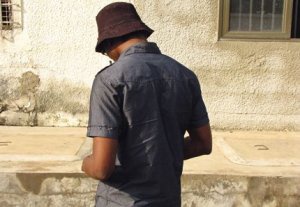A group of organizations and individuals in the fight against corruption, have lent their support to Ace Journalist Anas Aremeyaw Anas and his team, and commended them for revealing the rot in the country’s Judiciary.
They are Citizens Movement against Corruption, a non-partisan Civil Society, private sector collaboration involving, Ghana-Centre for Democratic Development, Ghana Integrity Initiative, Ghana Anti-Corruption Coalition and individuals like Nana Osei Bonsu, Prof Kwame Karikari, and Mr Akoto Ampaw, a private legal practitioner.
Speaking to the media in Accra on behalf of the group, Mr Tony Dogbe of Citizens Movement against Corruption (CMaC), said Ana’s video had affirmed persistent rumours and widespread perception of corruption in Ghana’s Judiciary, adding that the brilliant example of investigative reporting had also exposed the pedestrian performance of many of the state agencies charged with the responsibility of attacking corruption and providing integrity in public life in Ghana.
He commended the Chief Justice for fully embracing the revelations by Anas as an opportunity to attack the problem of bribery and corruption in the nation’s Judiciary, and urged her to take steps to restore public confidence in the Judiciary.
“We strongly encourage her to remain resolute in the pursuit of the laudable goal of uprooting the canker of corruption in the end urged her to take steps to restore public confidence in the administration.”
Mr Dogbe said the courts were the last resort for the resolution of disputes and settlement of grievances in a democracy system. Where citizens cannot be assured of justice according to the law, the very foundation of our democratic system was at risk, for judges were expected to be above reproach.
“We recommend maximum transparency, including regular public information on the ongoing process through the media to foster public confidence in the process as well as its eventual outcomes.
According to him, this would assure the public that the Chief Justice and the judicial establishment were determined to uphold and promote the values of probity and accountability, even if the reputation of the Judiciary had been severely dented.
“We however remain deeply anxious about the possibility that this sordid episode in our national life could be swept under the carpet like so many other important national issues, he said.
“We have noted with consternation the attempts by some of the judges implicated in the scandal to block the publication and video screening of the results of the undercover investigation and we are concerned that left unchecked this fight-back could derail the entire process of judicial inquiry and potential reform of that institution.”
He said they were firmly convinced that the problem of corruption and lack of integrity in a Ghana’s Judiciary and the resultant public mistrust in the institution went deeper than what was revealed in the Ana’s expose, ’ hence they would not be resolved by simply removing the judges found culpable from office and criminally prosecuting them.
Restoring confidence in the Judiciary as well as the viability of Ghana’s democratic system under the Fourth Republican Constitution would require radical and far-reaching reforms.
The group expressed disappointment at the silence of the political parties of a matter of this magnitude that threatened the very foundation of our democracy.
They called for massive and sustainable support from the citizenry, backed by an organized protest movement, as that was the only way to ensure the success of official efforts to rid the Judiciary of corruption.
By that citizens could also reject any half-baked measures and to demand full blown reforms to our deeply-flawed judicial system
They called for an independent Commission made up of judges, retired judges of the Commonwealth who are renowned for their resolute commitment to truth and justice, who should be tasked to enquire into the roots of the scandal and submit a report for the consideration of Parliament, the Executive and above, Ghanaians, for corrective institutional reforms to be undertaken.
They argued that the entire justice delivery system including private lawyers from the Attorney-General’s Department, as well as the Police Service must be called into question if we hoped to achieve lasting impact.
He said there was strength in numbers, adding that therefore if there was such massive movement in support of investigative journalism, it would encourage most journalists to do more of such investigations because they would have public backing.
Mr Akoto Ampaw said the judges had the right to go to court, but the public also had equal right to express their views on the issue.
Answering a question on the possible police prevention of such organised movement, Prof Karikari said we could not fight corruption if we had impediments to freedom of expression.
Mrs Mary Awelana Addah of the Ghana Integrity Initiative (GII), disclosed that GII would launch the I pay bribe plat form where citizens who were made to pay bribe could call to report
CMaC is seeking to strengthen private sector and civil society collaboration against corruption; create public awareness on the effects of corruption on national development and the need to fight against it in all its forms and at all levels; and influence Government to step up its responsiveness to corrupt issues in Ghana.
Regional News of Tuesday, 13 October 2015
Source: GNA
Organizations support Anas and team
Entertainment
















